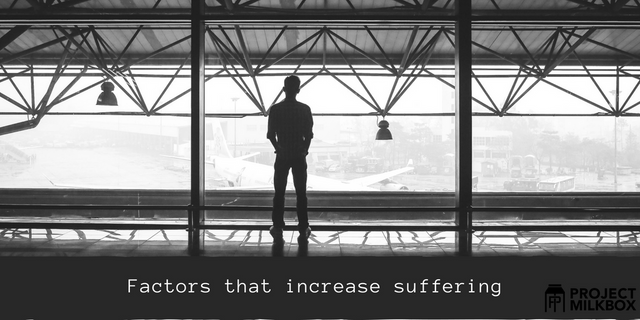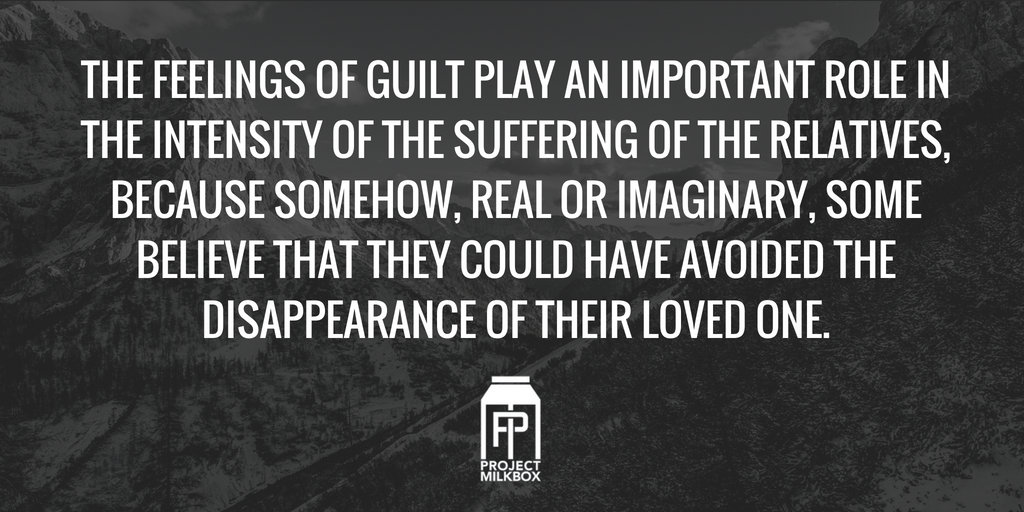⚠️Factors that increase suffering (+ a little relief) - Project Milkbox 🥛

While it is true that suffering is not a disease, with the passage of time it can become a true trigger of discomfort.
The greatest difficulty for families of missing persons is that they may not appear in the short term and the suffering may intensify and extend indefinitely.
Why?
The uncertainty and obsession to know what happened to the loved one can generate inappropriate and unexpected behaviors that make suffering an even more exasperating experience.
Another factor that influences the intensity of the suffering is the place occupied by the disappeared person in the family group. If, for example, you are a provider of the family, you add another concern for children, wives and / or mothers. The sick and disabled who have to face needs and needs that they did not suffer before, thus increasing their suffering.
In many cases, the indifference of the community, of the judicial and / or governmental entities, increases the feeling of being fighting alone and without the support of those who could accelerate and improve the search process, making the anguish and despair each time. greater.
Is this fair?

There are relatives who, in the face of suffering, tend to neglect their health, their appearance, and the satisfaction of basic needs such as eating and sleeping, becoming irritable and complicating the personal and family situation. So that the suffering becomes a continuous mourn, that does not get to elaborate, since, it is not known if the relative is alive or dead. And relatives come to wish that it appears in either of the two ways to end the uncertainty and close the cycle of pain and intense suffering that afflicts them, even knowing that they will always carry the sadness for the loss of their loved one, in addition to deal with the psychological trauma left by the experience.
So...

There are some recommendations that family members can follow to alleviate suffering.
First, keep the family together. Make family meetings at least once a week or whenever is necessary for the purpose of discussing the experience, their feelings, and sharing information.
They can also, together or individually, practice emotional control, manage feelings of guilt (for which they may need specialized help) and maintain contact with the outside world, with the sun, with clean air and with good friends. The moments of solitude are good for reflection and relief, but it is not advisable to extend much in long thoughts.
When there are family members who can not concentrate on their basic needs, it is necessary to assign a person who is attentive to the food, hygiene and rest of the most affected relatives.On the other hand, they do well to be part of support groups, since members of these groups have similar experiences and can exchange opinions, seek solutions, consider the consequences of what they are living and compare reactions, considering that there are different ways of live and express suffering. Likewise, they can organize search and family exchange activities, especially for children and adolescents, who sometimes do not know how to deal with the situation.
The bravest can try to involve the sensitive friends and neighbors of the community, making posters, giving prevention talks and doing activities that help the family to be busy, strengthening the feeling of doing something for their loved one.

